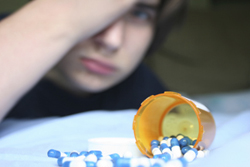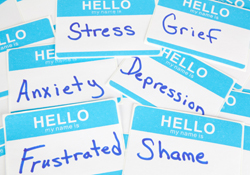Behaviorism and Mental Health
By Phil Hickey, March 16, 2015
It’s no secret that here in America, foster children are being prescribed psychiatric drugs, especially neuroleptics, as a means of controlling their behavior. A great deal has been said and written on the matter. Politicians have declared the practice deplorable. Children’s advocacy groups have expressed concern, and, of course, those of us in the antipsychiatry movement have screamed till we’re hoarse. But the problem persists.
For the past six months or so, the San Jose Mercury News, a California newspaper, has been running frequent articles on this topic, calling for oversight and corrective action.
On February 24, 2015, Karen de Sá, a reporter with that newspaper, published an article titled Senate panel examines why California foster care system ‘addicted’ to psychiatric drugs. It’s an excellent article, which highlights various aspects of the problem, and provides updated information on this matter.
Here are some quotes:
“California’s foster care system ‘has grown more addicted to mind-altering medication,’ the chair of a powerful Senate committee told a packed public hearing in the state Capitol on Tuesday, adding that ‘here in California, we’ve done little to act on this alarming issue.’”

Will Lightbourne, director of the state’s Department of Social Services said foster children deserve “nonmedical treatments whenever possible.”
“Lightbourne said two state-sponsored panels have spent years working to develop guidelines that would protect foster children from the excessive use of psych medications and to house fewer kids at residential group homes, where drugs are most frequently prescribed. Foster children deserve ‘nonmedical treatments whenever possible,’ Lightbourne said.”
“‘We need to shift our thinking away from the primacy of psychiatric medications toward relationships,’ testified George Stewart, a Berkeley child psychiatrist who has spent much of his career tapering severely traumatized children safely off high-risk drug cocktails. ‘We are going to look back on this era of great enthusiasm for psychiatric medications and either scratch our heads or beat our heads. We will look back in 20 years and say, ‘What were we doing?’”
“Senators also said they were alarmed by the newspaper’s analysis that showed how pharmaceutical companies lavish the state’s foster care prescribers with millions of dollars for meals, gifts, travel, speaking engagements and research grants — a practice Lightbourne called ‘deeply troubling.’ The newspaper found the doctors who prescribed the most, typically were rewarded the most.”
All of which tells a familiar story. Pharma-psychiatry systematically targets foster children as potential customers. They do this because the residents of foster homes, group and individual, are a “captive audience,” in the sense that the foster parent or staff member will ensure that the resident takes the pills. In this way, non-compliance – the great drain on pharma revenue – becomes a non-issue.
Karen de Sá’s article is cogent, articulate, and powerful, and undoubtedly she and her colleagues are raising awareness on this matter. But there was one paragraph in her article that I felt warranted some additional discussion.
“Tuesday’s four-hour hearing before the Human Services Committee highlighted a package of bills being introduced this month, following this newspaper’s investigation ‘Drugging Our Kids,’ which revealed nearly one in four foster care teens take psychiatric drugs — often to control behavior, not to treat mental illnesses. Most are prescribed antipsychotics, a powerful class of psychiatric drugs with the most harmful side effects.”
Note the phrase “…often to control behavior, not to treat mental illnesses”. What the author is missing here is that, within psychiatry’s spurious domain, misbehavior is a mental illness. In fact, it is several mental illnesses. If a child is frequently defiant, he has a mental illness called oppositional defiant disorder. If he is given to outbursts of anger, he has a mental illness called intermittent explosive disorder. If he is given to violating rules or infringing on the rights of others, he has a mental illness called conduct disorder. If he is given to setting fires, he has a mental illness called pyromania. If he is persistently angry and given to very frequent temper tantrums, he has a mental illness called disruptive mood dysregulation disorder. And, of course, if he is disruptive and inattentive in the classroom, he has attention deficit hyperactivity disorder. If the child’s misbehavior can’t be shoe-horned neatly into any of these categories, psychiatry has two residual categories:
- other specified disruptive, impulse-control, and conduct disorder; and
- unspecified disruptive impulse-control and conduct disorder.
Contrary to popular opinion, no neurological pathology is required to establish these “diagnoses.”

There is literally no significant problem of thinking, feeling, and/or behaving that is not listed, either directly, or by implication, in the DSM.
So, by neatly re-labeling every conceivable kind of misbehavior as a mental illness, psychiatry has established turf in this field, and has legitimized the use of drugs to “treat” this misbehavior.
This is the crux of the entire debate. There is literally no significant problem of thinking, feeling, and/or behaving that is not listed, either directly, or by implication, in the DSM. So, Karen de Sá is incorrect. In the looking-glass world of psychiatry, practitioners are not prescribing major tranquilizers to control children’s behavior. Rather, they are “treating mental illnesses”, with medications that have been proven by highly questionable pharma research to be “effective and safe”. We have actually reached the position in our society where a physician who does not follow these practices could be held liable for failure to treat.
And this is the problem. Every attempt to eliminate, or even reduce, this widespread and persistent practice, is doomed to failure as long as psychiatry’s spurious diagnoses are accepted as bona fide illnesses. Because if childhood misbehavior is an illness, then psychiatrists and other physicians are not using drugs to control behavior, rather they are “treating”, compassionately and effectively, these “disabling illnesses”.
Psychiatry, over the past five decades, has systematically and deceptively pursued a self-serving policy of medicalizing virtually every significant problem of thinking, feeling, and/or behaving. Their pharma allies have provided the money, and psychiatry has provided the credentials, in what is arguably the most widespread and destructive swindle in human history. And they have been enormously successful. Their spurious notions are widely accepted today as reality.
No significant progress will be possible in these areas until the swindle is finally and utterly exposed, and sanity is restored to our conceptualizations of human activity. Until then, despite the protests of politicians, advocates, journalists, and others, the pharma-psychiatry maw will remain wide open, and the ranks of “the mentally ill” who need “treatment” will continue to grow.
http://www.behaviorismandmentalhealth.com/2015/03/16/the-drugging-of-children-in-foster-care/




SHARE YOUR STORY/COMMENT